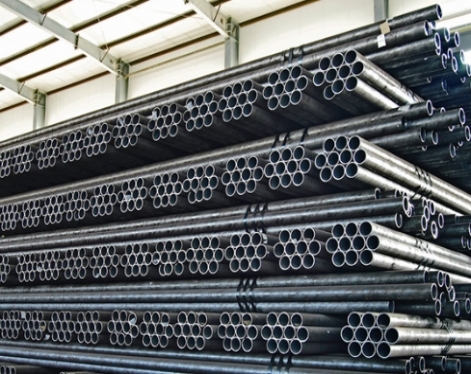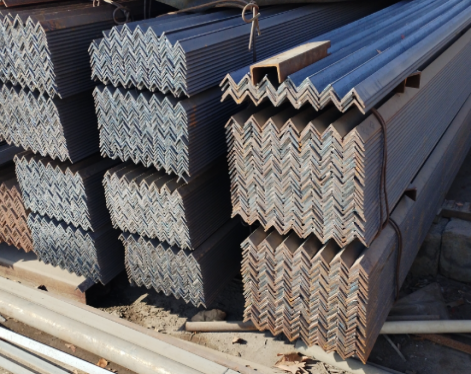Boiler tubes are a crucial component of boiler systems, often manufactured using seamless pipe due to its superior strength and reliability. These tubes operate in extremely harsh environments, facing prolonged exposure to high temperatures, high pressures, and corrosive conditions. The use of seamless pipe ensures that boiler tubes maintain their integrity under such demanding conditions. Their performance at high temperatures is directly linked to the safe, stable, and efficient operation of the entire boiler system.
Effect of high temperature on boiler tube performance
High temperatures can negatively impact the performance of boiler tubes in many ways, including:
Strength reduction: As the temperature rises, the yield strength and tensile strength of metal materials gradually decrease. For example, at 500°C, the yield strength of carbon steel is only about 60% of that at room temperature.
Creep: Under long-term conditions of high temperature and stress, metal materials undergo slow and continuous plastic deformation, known as creep. Creep can cause the wall thickness of boiler tubes to decrease, potentially leading to tube bursts.
Oxidation and corrosion: High temperatures accelerate the oxidation and corrosion of boiler tubes, especially when the flue gas contains corrosive media such as sulfur and chlorine. Oxidation and corrosion weaken the boiler tubes and shorten their service life.
Structural degradation: Long-term high temperature can cause changes in the structure of metal materials, such as grain growth, carbide aggregation, etc. These structural degradations will reduce the mechanical properties and corrosion resistance of the material.
uation indicators of high temperature performance of boiler tubes
To uate the performance of boiler tubes at high temperatures, the following key indicators need to be considered:
High temperature strength: including high temperature yield strength, high temperature tensile strength, etc., which reflects the ability of the material to resist plastic deformation and fracture at high temperature.
Creep limit and rupture strength: Creep limit refers to the stress at which a material undergoes a certain amount of creep deformation within a specified temperature and time; Endurance strength refers to the stress at which a material breaks at a specified temperature and time. These two indicators reflect the material's ability to resist deformation and fracture under long-term stress at high temperature.
Oxidation resistance and corrosion resistance: reflects the material's ability to resist oxidation and corrosion at high temperatures.
Tissue stability: reflects the ability of a material to maintain a stable tissue structure during long-term use at high temperatures.

Measures to improve high-temperature performance of boiler tubes
In order to improve the performance of boiler tubes at high temperatures, the following measures can be taken:
1. Heat-resistant steel: Heat-resistant steel is a type of steel that exhibits excellent mechanical properties and resistance to oxidation and corrosion at high temperatures. Commonly used heat-resistant steels for boiler tubes include pearlitic heat-resistant steel (such as 12Cr1MoV), martensitic heat-resistant steel (such as T91), and austenitic heat-resistant steel (such as TP347H).
2. Optimize structural design: By rationally designing the structure of boiler tubes, such as using thick-walled tubes and adding supports, the stress level of boiler tubes can be reduced and their creep and fracture resistance can be improved.
3. Control operating parameters: Strictly controlling the operating parameters of the boiler, such as temperature, pressure, flue gas composition, etc., can slow down the oxidation, corrosion and structural deterioration of the boiler tubes.
4. Strengthen maintenance: Regularly inspect, maintain and service boiler tubes to detect and deal with potential problems in a timely manner, which can effectively extend the service life of boiler tubes.
Development trend of research on high-temperature performance of boiler tubes
As boilers develop towards higher parameters and larger capacities, the requirements for high-temperature performance of boiler tubes are becoming increasingly higher. In the future, research on high-temperature performance of boiler tubes will focus on the following aspects:
Develop new heat-resistant steels: Research and develop new heat-resistant steels with higher high-temperature strength, better oxidation resistance, and better corrosion resistance to meet the needs of the development of advanced boiler technologies such as ultra-supercritical boilers.
Study high-temperature damage mechanisms: In-depth research on the damage mechanisms of boiler tubes at high temperatures, such as creep damage and oxidation corrosion damage, provides a theoretical basis for formulating more effective protective measures.
Develop life prediction technology: Develop boiler tube life prediction technology based on damage mechanisms to accurately assess the remaining life of boiler tubes and provide assurance for safe boiler operation.
Conclusion
The performance of boiler tubes at high temperatures is a key factor affecting the safe, stable and efficient operation of the boiler. By selecting appropriate materials, optimizing structural design, controlling operating parameters and strengthening maintenance, the high-temperature performance of boiler tubes can be effectively improved and their service life can be extended. In the future, with the continuous emergence of new materials and new technologies, research on the high-temperature performance of boiler tubes will continue to make new breakthroughs, providing strong support for the development of boiler technology.
Read more: Performance of Boiler Tubes at High Temperatures
Effect of high temperature on boiler tube performance
High temperatures can negatively impact the performance of boiler tubes in many ways, including:
Strength reduction: As the temperature rises, the yield strength and tensile strength of metal materials gradually decrease. For example, at 500°C, the yield strength of carbon steel is only about 60% of that at room temperature.
Creep: Under long-term conditions of high temperature and stress, metal materials undergo slow and continuous plastic deformation, known as creep. Creep can cause the wall thickness of boiler tubes to decrease, potentially leading to tube bursts.
Oxidation and corrosion: High temperatures accelerate the oxidation and corrosion of boiler tubes, especially when the flue gas contains corrosive media such as sulfur and chlorine. Oxidation and corrosion weaken the boiler tubes and shorten their service life.
Structural degradation: Long-term high temperature can cause changes in the structure of metal materials, such as grain growth, carbide aggregation, etc. These structural degradations will reduce the mechanical properties and corrosion resistance of the material.
uation indicators of high temperature performance of boiler tubes
To uate the performance of boiler tubes at high temperatures, the following key indicators need to be considered:
High temperature strength: including high temperature yield strength, high temperature tensile strength, etc., which reflects the ability of the material to resist plastic deformation and fracture at high temperature.
Creep limit and rupture strength: Creep limit refers to the stress at which a material undergoes a certain amount of creep deformation within a specified temperature and time; Endurance strength refers to the stress at which a material breaks at a specified temperature and time. These two indicators reflect the material's ability to resist deformation and fracture under long-term stress at high temperature.
Oxidation resistance and corrosion resistance: reflects the material's ability to resist oxidation and corrosion at high temperatures.
Tissue stability: reflects the ability of a material to maintain a stable tissue structure during long-term use at high temperatures.

Measures to improve high-temperature performance of boiler tubes
In order to improve the performance of boiler tubes at high temperatures, the following measures can be taken:
1. Heat-resistant steel: Heat-resistant steel is a type of steel that exhibits excellent mechanical properties and resistance to oxidation and corrosion at high temperatures. Commonly used heat-resistant steels for boiler tubes include pearlitic heat-resistant steel (such as 12Cr1MoV), martensitic heat-resistant steel (such as T91), and austenitic heat-resistant steel (such as TP347H).
2. Optimize structural design: By rationally designing the structure of boiler tubes, such as using thick-walled tubes and adding supports, the stress level of boiler tubes can be reduced and their creep and fracture resistance can be improved.
3. Control operating parameters: Strictly controlling the operating parameters of the boiler, such as temperature, pressure, flue gas composition, etc., can slow down the oxidation, corrosion and structural deterioration of the boiler tubes.
4. Strengthen maintenance: Regularly inspect, maintain and service boiler tubes to detect and deal with potential problems in a timely manner, which can effectively extend the service life of boiler tubes.
Development trend of research on high-temperature performance of boiler tubes
As boilers develop towards higher parameters and larger capacities, the requirements for high-temperature performance of boiler tubes are becoming increasingly higher. In the future, research on high-temperature performance of boiler tubes will focus on the following aspects:
Develop new heat-resistant steels: Research and develop new heat-resistant steels with higher high-temperature strength, better oxidation resistance, and better corrosion resistance to meet the needs of the development of advanced boiler technologies such as ultra-supercritical boilers.
Study high-temperature damage mechanisms: In-depth research on the damage mechanisms of boiler tubes at high temperatures, such as creep damage and oxidation corrosion damage, provides a theoretical basis for formulating more effective protective measures.
Develop life prediction technology: Develop boiler tube life prediction technology based on damage mechanisms to accurately assess the remaining life of boiler tubes and provide assurance for safe boiler operation.
Conclusion
The performance of boiler tubes at high temperatures is a key factor affecting the safe, stable and efficient operation of the boiler. By selecting appropriate materials, optimizing structural design, controlling operating parameters and strengthening maintenance, the high-temperature performance of boiler tubes can be effectively improved and their service life can be extended. In the future, with the continuous emergence of new materials and new technologies, research on the high-temperature performance of boiler tubes will continue to make new breakthroughs, providing strong support for the development of boiler technology.
Read more: Performance of Boiler Tubes at High Temperatures









